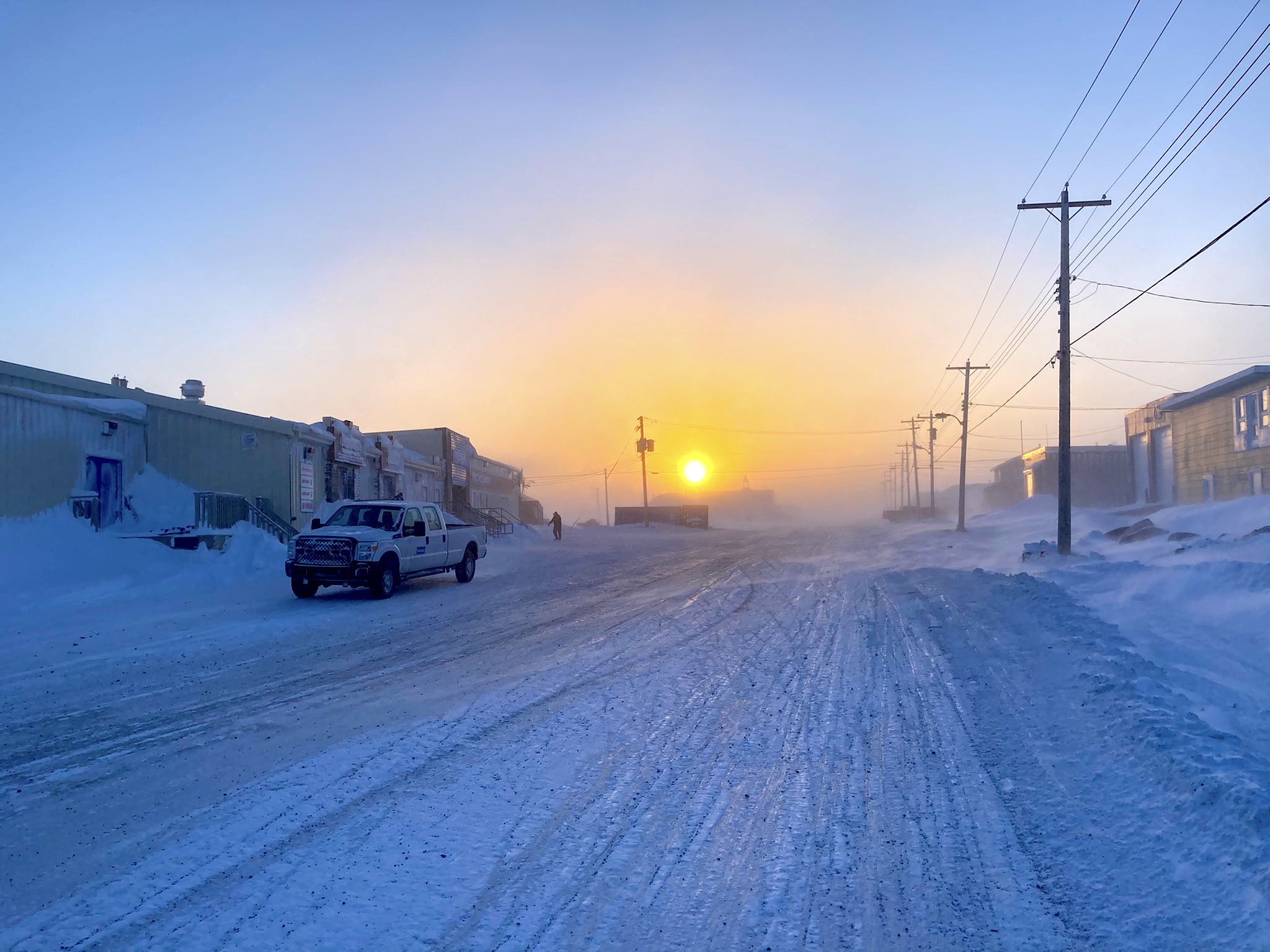Nunavut community declares state of emergency in a bid to control COVID-19 spread
“We have to put our foot down now.”

People in Arviat, the hotspot of Nunavut’s COVID-19 infections, are once again under a restrictive lockdown for two weeks, as of 8 a.m. Wednesday.
That was the message Joe Savikataaq Jr., the mayor of this Kivalliq community of about 3,000, delivered Tuesday afternoon during a two-hour call-in show on local radio.
Savikataaq said hamlet councillors decided to declare a state of emergency in the community and set a curfew from 10 p.m. to 6 a.m., after holding two emergency meetings this week.
Savikataaq said COVID-19 has been spreading for “too long now” in Arviat, which saw the first of its more than 300 infections last November.
“We have to put our foot down now,” he said during the call-in show, speaking in Inuktitut and English.
Since the virus first surfaced in the territory last fall, Arviat has seen more COVID-19 cases than any place in Nunavut, with 307 out of the 351 infections in the territory.
As of Tuesday, there were still 33 active COVID-19 cases in the community.
During the lockdown, hamlet bylaw officers will patrol around town, the mayor said.
“Everything will be reported to the RCMP,” Savikataaq said, directing his comments to those of “you who gather and smoke,” contrary to public health restrictions.
“We are going to watch you,” he said.
Compliance with the lockdown, which entails staying at home other than for trips to buy food or go to the health center, is “mandatory,” he said.
“It is for everyone, whether you have been vaccinated or not,” he said.
Savikataaq offered what he called “a glimmer of hope” for the community.
After the two-week lockdown, if the outbreak is contained, residents could see expanded house bubbles, reopening of schools and churches and larger social gatherings.
Callers expressed their fatigue over the restrictions and impacts of COVID-19. Diane Sammurtok, who lost her husband to COVID-19 in December, wept during her call.
Dr. Michael Patterson, the chief medical officer of Nunavut, also answered questions from Arviammiut and shared what he knew about the active cases in the community.
“We have established links for all of the cases, so currently we would not call this community transmission,” he said.
Residents should stay out of others’ houses, maintain social distancing and wear “a well-fitting mask,” he said.
The new infections are among those who did not get the vaccine, he said.
A COVID-19 vaccination clinic got underway last month in Arviat.
Patterson said the hope is to vaccinate all adults in Arviat. But herd immunity, achieved when a large part of the population is vaccinated, would still remain out of reach, he said.
That’s because more than half of the community are youth, Patterson said, who are not yet approved to receive vaccinations.
“Until we get other vaccines or they get approved for children we are not going to get this herd immunity,” he said.
None of the COVID-19 variants that have shown up in southern Canada have been detected in the community, he said.
On Monday, Patterson suggested that Arviat’s troubles controlling an outbreak of COVID-19 in the community might be due to “fatigue and boredom.”
But that didn’t surface in the calls Patterson received: many had practical questions, such as what a single mother should do with her infant if she needs to go shopping, whether it is safe to ship meat out of the community for sale, and when dental care will return.